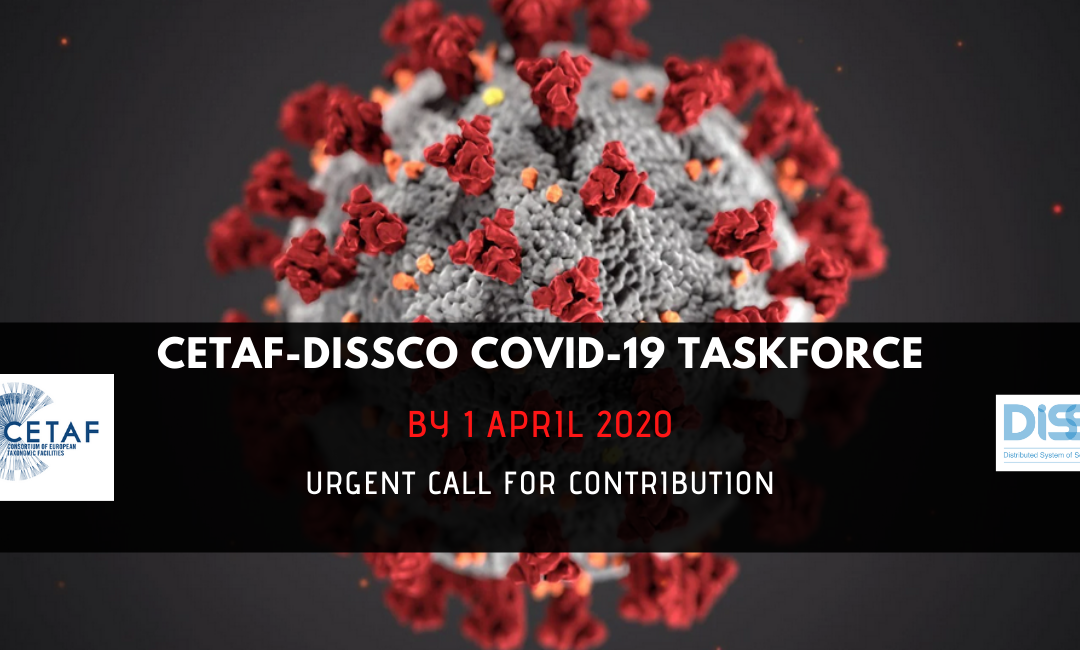![]() This post focuses on environmental research infrastructures responses to COVID-19, showcasing several new services and forms of support that were introduced since the outbreak’s onset.
This post focuses on environmental research infrastructures responses to COVID-19, showcasing several new services and forms of support that were introduced since the outbreak’s onset.
Material and educational support
✦ AnaEE has donated materials such as appropriate protective masks and medical coats, CRP kits and qCRP measurement devices to hospitals and involved research institutes. ✦ INTERACT has been active in organizing distance learning to students in the time when all universities are closed, while ✦ Eurofleets+ will develop a suite of multi-disciplined online tutorials and education training materials for Floating Universities to support the continued development of early stage researchers to mitigate against reduced access to Research Vessels now and in the future due to operational protocols in place to combat COVID-19.
Sharing research capacity
✦ ACTRIS has actively engaged with the wider community of Research Infrastructures in Europe to support joint activities for SARS-CoV-2 research. ACTRIS is collaborating with the European Strategy Forum on Research Infrastructures (ESFRI) and the Association of European-Level Research Infrastructures Facilities (ERF-AISBL) to create dedicated spaces favoring the uptake of services offered by RIs in support of scientists conducting research related to SARS-CoV-2.  ✦ EUROCHAMP, meanwhile, has offered up its simulation chamber FORTH-ASC (Greece) for testing the resistance of the virus on some emergency medical materials such as masks, gloves, etc. ✦ EMBRC has similarly enabled and supported research into deriving potential treatments targeting Coronaviruses from marine organisms.✦ The Eurofleets+ Remote Transnational Access programme will facilitate the collection of physical and data samples for the measurement of environmental changes as a result of the lockdown period and beyond. Also on the research front, ✦ LifeWatch ERIC has submitted a project proposal to the Spanish Ministry of Science and Innovation to create dedicated epidemiology and data support services. These are expected to become available in the next few months, and will make it possible to implement a large set of scenario and model simulations to establish alternative trajectories of the spread of SARS-CoV-2; perform an extensive sensitivity analysis to understand the major sources of uncertainty associated with model projections; develop an on-line decision support system enabling to make queries about risks in specific locations and time periods; support the federation, provenance and accountability mechanisms associated with distributed (e-)Resources through Blockchain-based technologies.
✦ EUROCHAMP, meanwhile, has offered up its simulation chamber FORTH-ASC (Greece) for testing the resistance of the virus on some emergency medical materials such as masks, gloves, etc. ✦ EMBRC has similarly enabled and supported research into deriving potential treatments targeting Coronaviruses from marine organisms.✦ The Eurofleets+ Remote Transnational Access programme will facilitate the collection of physical and data samples for the measurement of environmental changes as a result of the lockdown period and beyond. Also on the research front, ✦ LifeWatch ERIC has submitted a project proposal to the Spanish Ministry of Science and Innovation to create dedicated epidemiology and data support services. These are expected to become available in the next few months, and will make it possible to implement a large set of scenario and model simulations to establish alternative trajectories of the spread of SARS-CoV-2; perform an extensive sensitivity analysis to understand the major sources of uncertainty associated with model projections; develop an on-line decision support system enabling to make queries about risks in specific locations and time periods; support the federation, provenance and accountability mechanisms associated with distributed (e-)Resources through Blockchain-based technologies.
Preventing future pandemics
 ✦ AnaEE is developing recommendations for management practices that will have a direct impact in the diversification of the production and the development of local systems. This will provide higher security in the food supply chains in situations where global transportation is shut down for safety reasons. ✦ EMPHASIS is promoting long-term conservation of natural resources. ✦ Discco is developing guidelines for the preservation of viral evidence in deposited biological specimens and samples. ✦ Discco and CETAF together are developing a biodiversity-related knowledge hub on COVID-19.
✦ AnaEE is developing recommendations for management practices that will have a direct impact in the diversification of the production and the development of local systems. This will provide higher security in the food supply chains in situations where global transportation is shut down for safety reasons. ✦ EMPHASIS is promoting long-term conservation of natural resources. ✦ Discco is developing guidelines for the preservation of viral evidence in deposited biological specimens and samples. ✦ Discco and CETAF together are developing a biodiversity-related knowledge hub on COVID-19.
